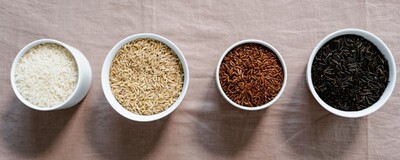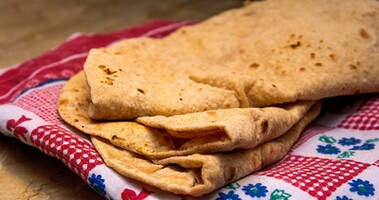
You are what you eat. You must have heard this little saying in the past, which is very much applicable to Ayurveda with regards to its take on the human diet. As you know, Ayurveda has been around for over 5000 years, and ever since its inception has emphasized the importance of food on the overall well-being of our mind and body.
We all know friends or family members who always eat healthy, take supplements, are into the latest health ideologies, but still look unhealthy. Alternately, we also know people who have poor diet habits but always seem to be in the best of health. While what you eat and how you eat is important, how you digest what you eat is more important. This is attributed in Ayurveda to the power of digestion that is called Agni.
Unlike other diets present today, Ayurveda seeks to balance different types of energy in our body. As such, it prescribes a diet plan filled with highly personalized recommendations about what to eat and what to avoid. In this article, we will look at what an Ayurvedic diet constitutes and how it can help in our holistic well-being.
The Ayurvedic Diet: An Overview
To understand the Ayurvedic diet, we must first acquaint ourselves with the basic principle of Ayurveda. Ayurveda, also known as ‘the science of life’ is a holistic practice that encourages a positive balance between the mind and body.
Ayurveda reveals that there are five key elements that make up our universe. These are Vayu (air), Jala (water), Prithvi (earth), Teja (fire), and Akash (water). All these elements interact with each other to form the three doshas, which are responsible for the energies within us that define our mental and physical traits.
Each dosha has an important role to play for us to function optimally. For example, the Kapha dosha aids joint function, whereas the pitta dosha is responsible for controlling hunger and thirst and Vata for movement.
The Ayurvedic Diet plan is derived and relies predominantly on us understanding our individual mind-body dosha type. The doshas provide you with a guideline that dictates what you should eat when you should eat, and how you should eat your food, all in compliance with your individual dosha type.
For example, if you belong to the Pitta dosha, then Ayurveda will recommend food which is cooling and reinvigorating, at the same time it will advise you to restrict your intake of spices, seeds, and nuts.
If you belong to Vata dosha, then Ayurveda will recommend food that is warm and moist while restricting raw veggies, dry fruits, and bitter herbs.
If you belong to the Kapha dosha, then Ayurveda will recommend food which is heavy like nuts, oil, and seeds while advising control on the consumption of vegetables, fruits, and legumes.
To assist you in determining your mind-body type, here is a brief description of each dosha.
Pitta Dosha – This dosha derives from the elements of fire and water. Individuals with this dosha are characterized as being intelligent, short-tempered, decisive, and hard working. Physically, individuals with this dosha type have a medium build and may encounter conditions like high blood pressure and heart disease in their lifetime.
Vata Dosha – This dosha derives from the elements of air and space. Individuals with this dosha are characterized as being energetic, creative, and enthusiastic. Physically, individuals with this dosha type have a lean frame and may encounter conditions such as fatigue, anxiety, and digestive issues in their lifetime.
Kapha Dosha – This dosha derives from the elements of earth and water. Individuals with this dosha are characterized as being loyal, calm, and grounded. Physically, individuals with this dosha type have a sturdy frame and may encounter conditions such as depression, diabetes, and asthma in their lifetime.
Now that we know how the doshas dictate our eating patterns in Ayurveda, let’s look at what food you can eat and what to avoid according to your dosha type.
Pitta
Food to Eat
- Pasta
- Black Beans
- Almonds
- Coconut
- Watermelon
- Sweet and bitter veggies
- Unsalted butter
- Egg whites
Foods to Avoid
- Spinach
- Rye
- Red wine
- Sour cream
- Quinoa
- Apricots
- Avocado
- Red meat
Vata
Food to Eat
- Sweet fruits
- Black Pepper
- Vinegar
- Flax seeds
- Chia Seeds
- Red lentils
- Quinoa
- Rice
- Ghee
- Fish
- Chicken
Food to Avoid
- Corn
- Chickpeas
- Dried Fruit
- Potatoes
- Barley
- Corn
- Raw or dried vegetables
- Yogurt
- Split peas
- Raw apples
Kapha
Food to Eat
- Lima Beans
- Buttermilk
- Cottage cheese
- Bitter or pungent veggies
- Skim Milk
- Pears
- Apples
- Lentils
- Black beans
- Oats
- Rye
- Ginger
- Turmeric
Foods to Avoid
- Bananas
- Coconut
- Red meat
- Cucumbers
- Kidney beans
- Walnuts
- Wheat
- rice
Benefits of an Ayurvedic Diet
Aids in Weight Loss
By recommending a healthy nutritious diet that strays away from processed and junk food, Ayurveda can help individuals lose excess unwanted weight. There have been significant studies that suggest that there is a direct connection between weight loss and an Ayurvedic diet.
A study published found that following an Ayurvedic diet plan resulted in an average weight loss of 6 kgs over a period of 9 months. Another study found that 200 people with Pitta and Kapha dosha who followed the Ayurvedic diet diligently for three months could notice significant weight loss. Both studies suggest that there is ample evidence that an Ayurvedic diet can indeed help with weight loss.
Helps Accomplish Peace of Mind
Ayurveda teaches us to pay close attention to the food we eat. This way it allows you to experience every single detail of the food you consume. From taste to its smell, Ayurvedic diet teaches how to be mindful of what you eat. According to a reports on published studies, people who practiced mindful eating experienced reduced depression, stress, and body weight.
Encourages Consumption of Organic and Whole Foods
Having whole, organic foods like vegetables, grains, fruits, and legumes is a great way for you to connect with your nature. Eating whole foods can have immense benefits on your overall health by providing the body with all the nutrients it needs.
The diet doesn’t have any room for processed food which does not offer anything with regards to minerals and vitamins. You don’t need Ayurveda to tell you the negative effects of processed junk food on your body. Majority of studies suggest a direct connection between chronic health conditions and junk food.
The Ayurvedic diet prescribes one with a wholesome diet that complies with your individual mind-body dosha type and aids in the overall improvement of your mental and physical wellbeing.
Note: The information in this article is intended for your educational use only and is not a substitute for professional medical advice, diagnosis, or treatment. Always seek the advice of your physician or other qualified health providers with any questions you may have regarding a medical condition and before undertaking any diet, supplement, fitness, or other health programs.





